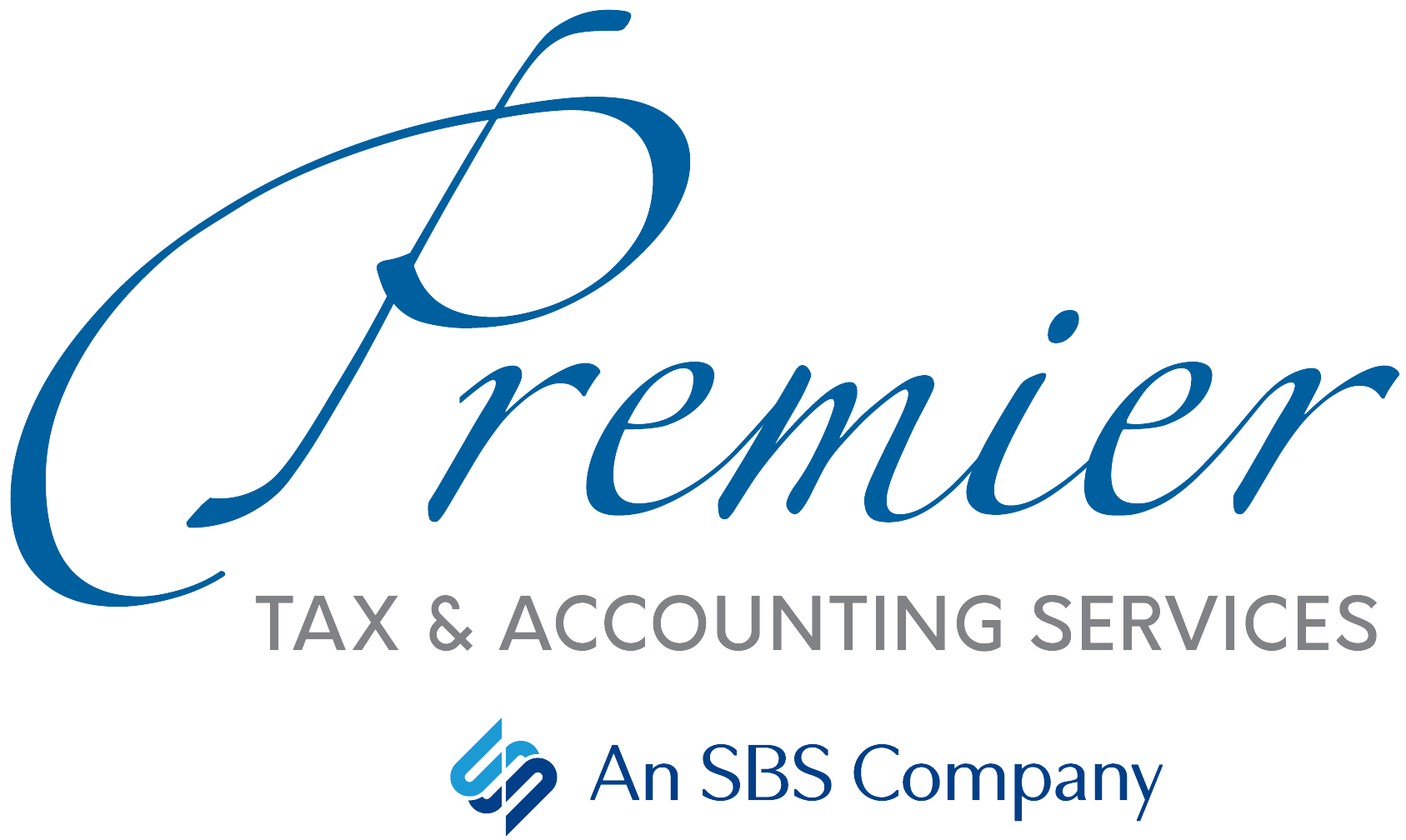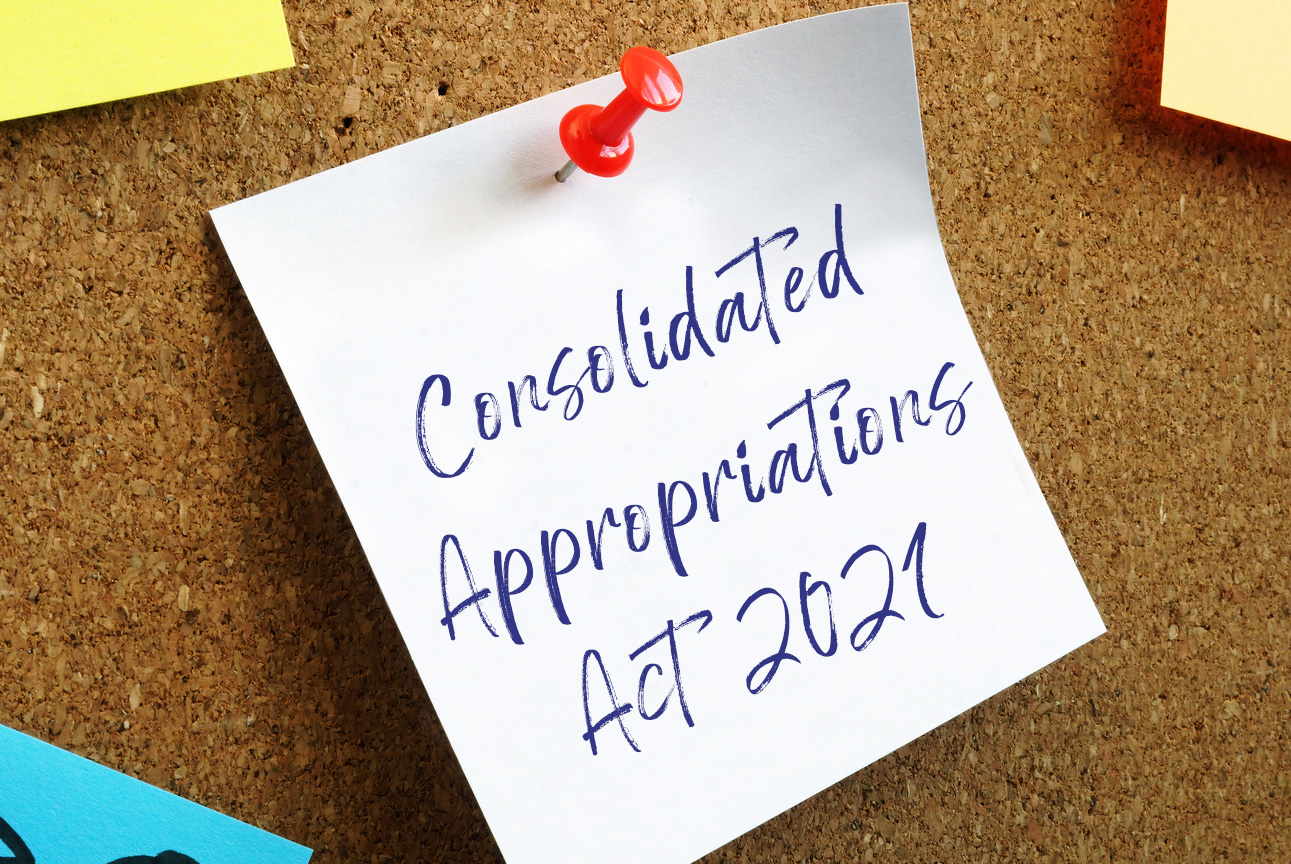On December 27, 2020, President Trump signed into law the newest $900 billion COVID-19 relief bill. The legislation, part of the Consolidated Appropriations Act, 2021, provides additional pandemic relief and clarifies the deductibility of business expenses paid with forgiven Paycheck Protection Program (PPP) loans. Key provisions of the new law include:
- $166 billion for Economic Impact Payments of $600 to each eligible taxpayer (see Money Brief at right).
- $120 billion for $300 per week in extended weekly unemployment benefits (December 26, 2020-March 14, 2021).
- $25 billion in emergency rental aid, plus an extension of the national eviction moratorium (through January 31, 2021).
- $325 billion in aid for small businesses, including $284+ billion for additional PPP loans; $20 billion for Economic Injury Disaster Loan (EIDL) Grants; $15 billion for shuttered live venues, independent movie theaters and cultural institutions; and $12 billion for businesses in low-income and minority communities.
- $45 billion in transportation funding (for airlines, transit systems, state highways and more).
- $82 billion in funding for colleges and schools, plus $10 billion in childcare assistance.
- $22 billion for state, local, tribal and territorial governments.
- $13 billion for emergency food assistance, including a six-month, 15% increase in SNAP benefits.
- $7 billion for broadband expansion.
The new law also extends the Employee Retention Tax Credit and several expiring tax provisions, and temporarily allows a 100% business expense deduction for meals (up from the current 50%) as long as the expense is for food or beverages provided by a restaurant. This provision is effective for expenses incurred January 1, 2021, thru December 31, 2022.
Second Round of PPP Funds Available
The new round of PPP — or PPP2 — is similar to the first round of PPP loans, but includes several important differences:
1) PPP2 loans are available to both first-time qualified borrowers and to businesses that previously received a PPP loan. Specifically, previous PPP recipients may apply for another loan of up to $2 million if they:
- Have 300 or fewer employees.
- Have used or will use the full amount of their first PPP loan.
- Can show a 25% gross revenue decline in any 2020 quarter compared with the same quarter in 2019.
2) PPP2 loans are now available to Sec. 501(c)(6) business leagues, such as chambers of commerce, visitors’ bureaus, and destination marketing organizations, if:
- They have 300 or fewer employees, and
- Their lobbying activities comprise no more than 15% of their total activities, and cost no more than $1 million during the most recent tax year that ended prior to February 15, 2020.
3) Other first-time borrowers that may now apply for PPP loans include:
- Businesses with 500 or fewer employees that are eligible for other SBA 7(a) loans.
- Sole proprietors, independent contractors, and eligible self-employed individuals.
- Not-for-profits, including churches.
- Accommodation and food services operations (those with NAICS codes starting with 72) with fewer than 300 employees per physical location.
4) Borrowers that returned all or part of a previous PPP loan may reapply for the maximum amount available to them.
Perhaps the best part of the new law specifies that business expenses paid with forgiven PPP loans ARE tax-deductible. This reverses previous IRS guidance that such expenses could not be deducted.
PPP Forgiveness Criteria Expanded
As before, the costs eligible for loan forgiveness include payroll, rent, covered mortgage interest and utilities. However, PPP2 also makes the following potentially forgivable:
- Covered worker protection and facility modification expenditures, including personal protective equipment, to comply with COVID-19 federal health and safety guidelines.
- Expenditures to suppliers that are essential to the recipient’s current operations.
- Covered operating costs, such as software, cloud computing services and accounting needs.
To be eligible for full loan forgiveness, PPP2 borrowers will have to spend no less than 60% of the funds on payroll over a period of either eight or 24 weeks. PPP2 borrowers may receive a loan amount of up to 2.5 times their average monthly payroll costs in the year prior to the loan or the calendar year, but the maximum loan amount has been cut to $2 million. PPP2 borrowers with NAICS codes starting with 72 (hotels and restaurants) can get up to 3.5 times their average monthly payroll costs, subject to the $2 million maximum.
The new COVID-19 relief law creates a simplified forgiveness application process for loans of $150,000 or less. It also repeals the requirement that PPP borrowers deduct the amount of any EIDL advance from their PPP forgiveness amount.
Tax Deductibility for PPP Expenses Clarified
Perhaps the best part of the new law specifies that business expenses paid with forgiven PPP loans ARE tax-deductible. This reverses previous IRS guidance that such expenses could not be deducted. The new law states that “no deduction shall be denied, no tax attribute shall be reduced, and no basis increase shall be denied, by reason of the exclusion from gross income provided” by Section 1106 of the CARES Act (which has been redesignated as Section 7A of the Small Business Act). This provision applies to both PPP1 and PPP2 loans.
Keep in mind, however, that the state of Georgia may not follow the new federal rules regarding business expenses. For example, for taxable years beginning on or after January 1, 2018, and before January 1, 2019, Georgia has NOT adopted any of the 2019 or 2020 federal changes, including the federal CARES Act. So we may need to wait a bit — or file an amended state return — to find out how Georgia will handle the newly passed federal tax law.
We’re currently putting together a list of items we’ll need from you to file your taxes. Please bear with us as we negotiate all the changes involved due to COVID-19. If you have any questions, please feel free to contact us.
Source: Journal of Accountancy
Prepare Now for Tax Season
Beginning on January 8, 2021, we’ll be open on Fridays to assist you with your tax and financial planning needs.
We’re also taking tax appointments now if you’re a new client or have major changes to your taxes. Plan ahead and call Amber at 706-632-7850 to reserve your spot. Note that you do NOT need an appointment for us to handle your tax preparation — you can just drop off your files when you’re ready.
Money Brief: New $600 Stimulus Payments
You can expect to receive $600 directly deposited into your bank account within the next week or two, if you haven’t already. Paper checks have also started mailing out. The payments are part of the COVID-19 relief package signed by President Trump on December 27. Eligible individuals who meet income limits will receive $600; couples, $1,200; and families, an additional $600 per child. As before, your most recent tax return determines your eligibility for the stimulus payment — you’ll receive the full amount if you made under $75,000 as an individual or $150,000 as a couple.
Money Brief: GDOL Update
If you are a Georgia business owner, note that your 2021 Annual Unemployment Insurance (UI) Tax Rate Notice will be delayed. The Georgia Department of Labor expects to release the notices on the Employer Portal in February. Because of this, Employer Quarterly Tax and Wage reports will NOT be accepted for the 1st quarter of 2021 until the new tax rates are released. Look for an email once the 2021 tax rate notices are published — they will NOT be mailed. If you are not already registered on the GDOL Employer Portal, be sure to register to avoid delays in receiving your notice. Go to dol.georgia.gov, click on the Employers tab, and select Employer Portal.
Money Brief: 2021 Mileage Rates Decrease
The standard mileage rate for business use of a vehicle is decreasing in 2021 — to 56 cents per mile — down from 57.5 cents per mile in 2020. The rate applies for self-employed taxpayers who deduct automobile expenses if they qualify as ordinary and necessary business expenses, and employers who reimburse their employees for operating an automobile for business.
Money Brief: EITC/ACTC May Delay Refunds
If you claim the Earned Income Tax Credit or Additional Child Tax Credit, your refund (if any) may be delayed. By law, the IRS must hold the entire refund — even the portion not associated with EITC/ACTC — until at least mid-February. If you choose direct deposit, EITC/ACTC-related refunds should be available by the first week of March.



